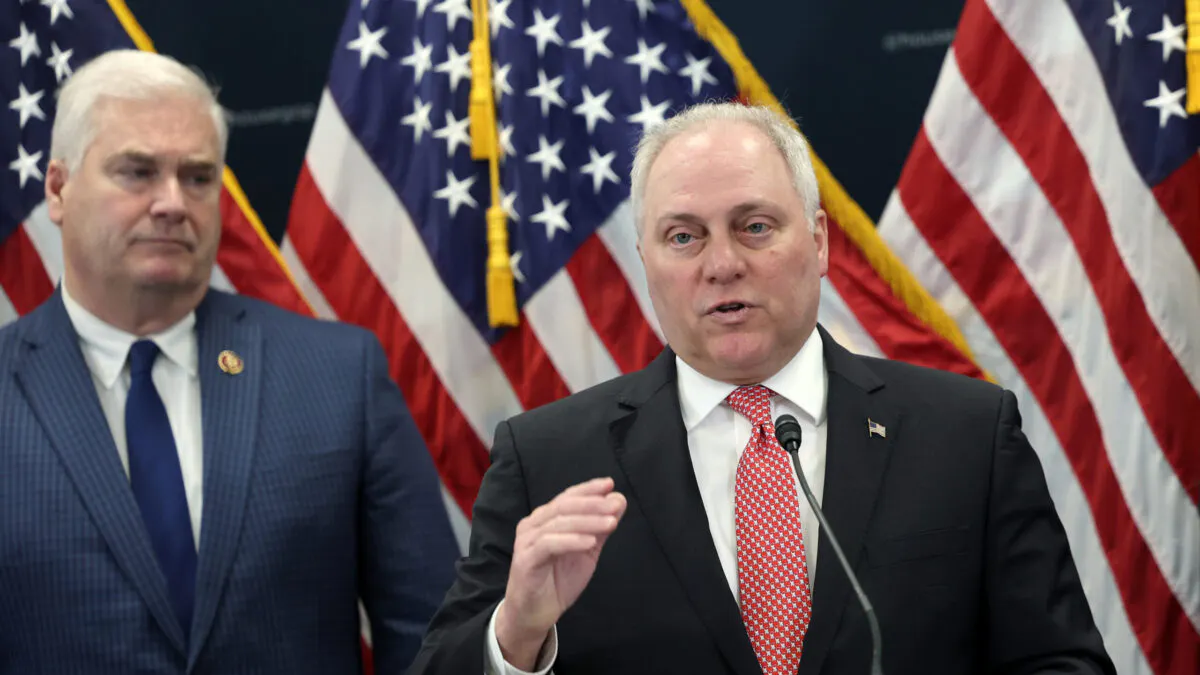The Republican-led House passed an extensive bill Thursday that aims to increase domestic energy production and ease permitting restrictions.
Four Democrats joined the vast majority of their GOP colleagues voting in favor of Majority Leader Steve Scalise (R-LA)’s legislation, the “Lower Energy Costs Act,” resulting in a final tally of 225-204. Six members did not vote.
Republicans argue the legislation would make the United States less dependent on foreign countries for oil and natural gas. Scalise said his bill would “unleash American energy production” and cut President Joe Biden’s “insane permitting red tape so families can see lower prices.”
🚨 Just went to the House Floor to call out Dems' hypocrisy on energy.
They get oil from hostile nations like Iran that produce it dirtier than us.
Yet block unleashing American energy production.
Thanks to them prices are higher for families.
It doesn't have to be like this. pic.twitter.com/7szAVwDB1V
— Steve Scalise (@SteveScalise) March 30, 2023
The top of the lengthy bill promises to “lower energy costs by increasing American energy production, exports, infrastructure, and critical minerals processing, by promoting transparency, accountability, permitting, and production of American resources, and by improving water quality certification and energy projects, and for other purposes.”
Now the bill heads to the Senate, which is held by a slim Democratic majority.
Earlier this month, Senate Majority Leader Chuck Schumer (D-NY) called the bill a “partisan, dead-on-arrival and unserious proposal” that doubles as a “wish list for Big Oil.” Schumer did, however, voice support for “good faith” bipartisan talks “to figure out what sort of permitting deal is possible.”
Fossil fuel groups and green energy groups have put on a rare united front to call for reforms to a “broken permitting system” that they say is hindering infrastructure development, according to Fox News.
One renewable-energy trade group, called the American Clean Power Association (ACP), argued that provisions and reforms in Scalise’s bill would help boost the clean energy cause in the United States, create jobs, and improve energy security.
“Failure to enact critical permitting reforms and lift barriers that are hindering our ability to build much-needed transmission puts an estimated 150,000 clean energy jobs at risk,” said ACP CEO Jason Grumet.
Should Scalise’s legislation make it through the upper chamber, it faces the threat of a veto by President Joe Biden, who has taken executive action to pause new oil and natural gas leasing on public lands and offshore waters. Biden has also set goals for the United States to have a carbon pollution-free power sector by 2035 and net-zero emissions economy by 2050.
In a statement this week, the Office of Management and Budget (OMB) argued the Lower Energy Costs Act would replace “pro-consumer policies with a thinly veiled license to pollute [the environment],” and would “raise costs for American families by repealing household energy rebates and rolling back historic investments to increase access to cost-lowering clean energy technologies.”

.png)
.png)

